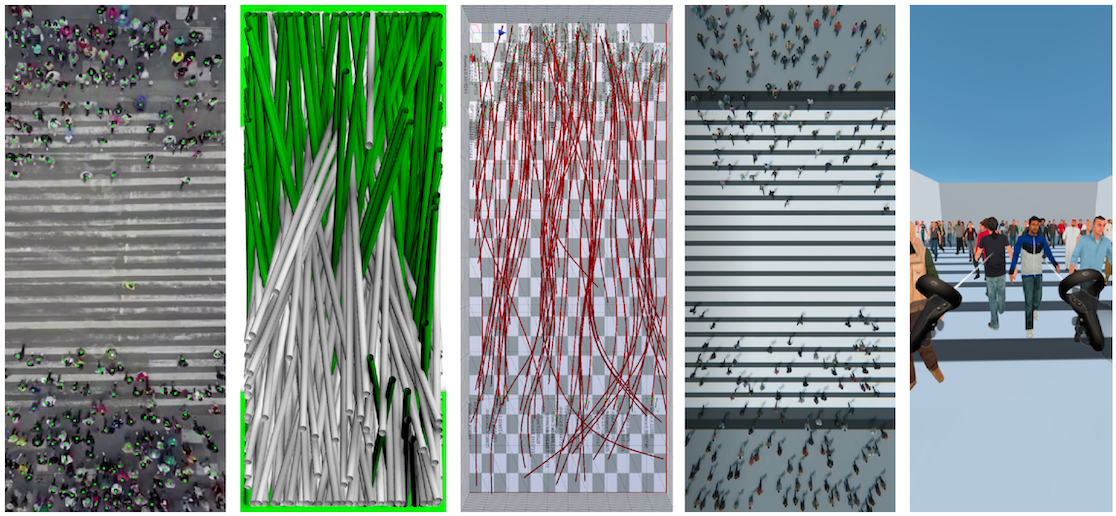Perceived realism of pedestrian crowds trajectories in VR
[2] Imperial College London
[3] CYENS - Centre of Excellence
[4] VGM & PAVIS
[5] Istituto Italiano di Tecnologia

Abstract
Crowd simulation algorithms play an essential role in populating Virtual Reality (VR) environments with multiple autonomous humanoid agents. The generation of plausible trajectories can be a significant computational cost for real-time graphics engines, especially in untethered and mobile devices such as portable VR devices. Previous research explores the plausibility and realism of crowd simulations on desktop computers but fails to account the impact it has on immersion. This study explores how the realism of crowd trajectories affects the perceived immersion in VR. We do so by running a psychophysical experiment in which participants rate the realism of real/synthetic trajectories data, showing similar level of perceived realism.
Links
Citation
author = {Giunchi, Daniele and Bovo, Riccardo and Charalambous, Panayiotis and Liarokapis, Fotis and Shipman, Alastair and James, Stuart and Steed, Anthony and Heinis, Thomas},
title = {Perceived Realism of Pedestrian Crowds Trajectories in VR},
year = {2021},
isbn = {9781450390927},
publisher = {Association for Computing Machinery},
address = {New York, NY, USA},
url = {https://doi.org/10.1145/3489849.3489860},
doi = {10.1145/3489849.3489860},
booktitle = {Proceedings of the 27th ACM Symposium on Virtual Reality Software and Technology},
articleno = {38},
numpages = {5},
keywords = {virtual reality, perception, crowd simulation},
location = {Osaka, Japan},
series = {VRST '21}
}
 V-EUPNEA
V-EUPNEA